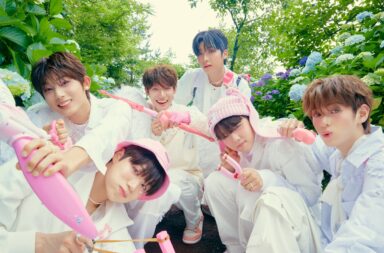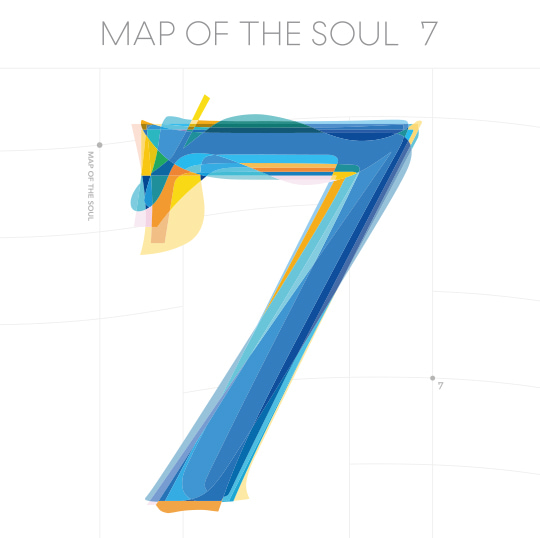
Anyone who has followed BTS from the beginning of their journey has witnessed history in the making. When they first hit Western headlines with their 2017 Billboard Top Social Artist award win, there was a slightly exaggerated claim that they were the biggest band in the world. That is no longer an exaggeration.
The stats and promotions accompanying their most recent album, Map of the Soul: 7, prove beyond doubt the scale and organic nature of their growth. The album gained 4 million pre-orders and precedes a global stadium tour that will probably sell out. Its release coincides with high-profile appearances on prime-time American TV, including a performance at the prestigious Grammy Awards. It boasts collaborations with some of the biggest artists in the world – Sia, Troye Sivan and Ed Sheeran.
It is poised to become the most successful K-pop album this year, and possibly ever. Paradoxically –- or perhaps inevitably given their newfound mainstream Western audience – Map of the Soul: 7 continues in large strides the group’s shift towards completely Westernised pop. As a result, it is musically one of BTS’ most unremarkable projects to date.
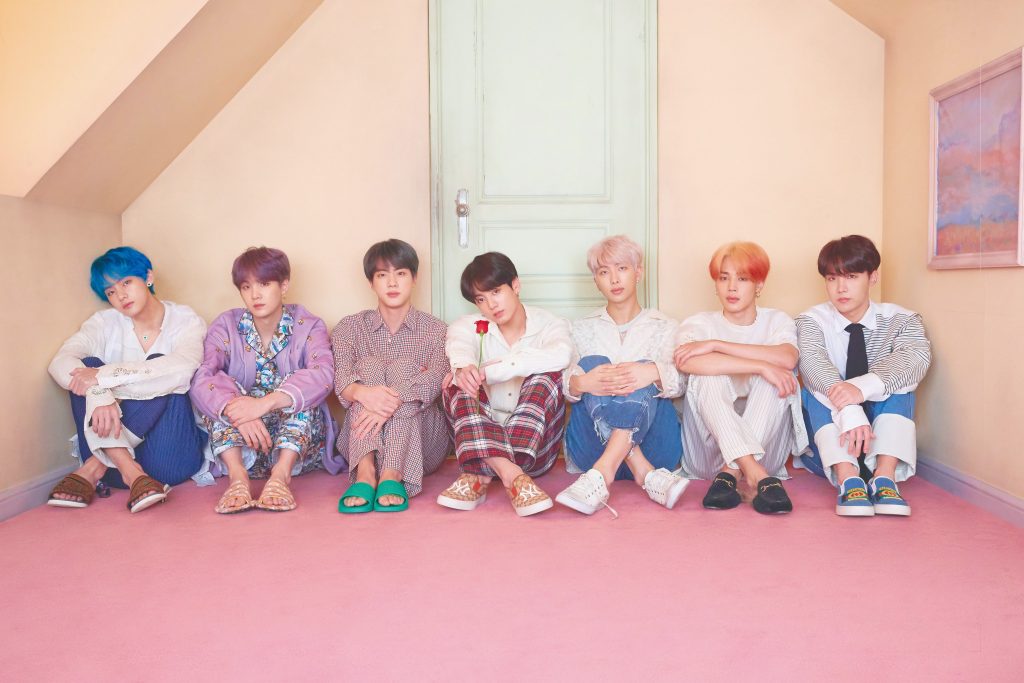
The 20-track album combines songs from 2019’s Map of the Soul: Persona, the first instalment in the Map of the Soul series, with 15 new tracks, including two versions of the lead single “On”. The list of contributing songwriters is as impressive as the tracklist; including the members themselves, a whopping 74 individuals are listed as either writers or producers.
Contrast this with the credit list on a similarly large album like Love Yourself: Answer (a total of 35 across 25 tracks). Go back even further and you’ll find that only 14 names are listed for The Most Beautiful Moment in Life: Young Forever (16 tracks excluding remixes). Year on year, the number of people touching a BTS album before its release has risen.
That’s not to say that companies should stick to working with the same few people for the entirety of a group’s career. On the contrary, BTS’ ascent has exponentially expanded the pool of lauded songwriting talent that Big Hit Entertainment can draw from, and when they’ve done so with care, some amazing songs have been born.
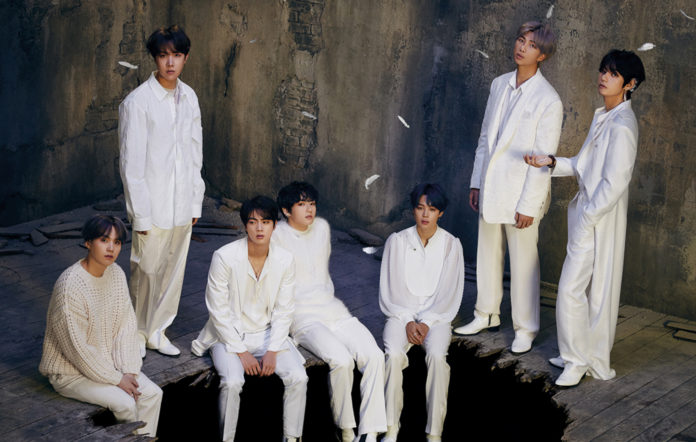
Rather, it’s a symptom of the problems that global fame has brought BTS. Faced with the weighty expectations that come with being the representative of a whole subsection of music, not to mention a country, Map of the Soul: 7 suffers acutely from overproduction, in what seems to be a case of too many cooks in the kitchen. At its best, it’s powerful, authentic and compelling, in the familiar way that BTS songs have come to be known for. At its worst, it’s dull, flat and uninspired, and unfortunately, this applies to the majority of the compilation’s new songs.
After a selection of tracks from Persona, Suga‘s solo, “Interlude: Shadow” and the pre-released “Black Swan” kick off the new chapter with a decidedly dark tone. “Interlude: Shadow” is the only song on the project produced by Suga, and you can tell; the slow, dramatic intro and melancholic chorus recall his 2014 effort, “Let Me Know”.
This and “Black Swan” remain the album’s most interesting and compelling songs. In them, the group give us a hint of the struggles that have accompanied them to this peak. Most telling is Suga’s opening verse in “Black Swan”:
My heart doesn’t beat anymore
When I hear the music
Tryna pull up
It’s like time has stopped
Oh that would be my first death
I been always afraid of
Unlike many of the other songs on this album, “Black Swan” is unapologetically dark and remains so to the end of its short length. It does not have a happy ending plastered onto it – if anything, there is a poignant and sobering lack of closure, as it ends suddenly with a repeat of the haunting guitar intro. Even in the choreography, everything comes full circle as they end in the same position that they began in; things remain unresolved. The overall effect is like that of a bad dream, looping endlessly with no escape.
After this, the album breaks down into solo and unit songs, punctuated by a few group get-togethers, including “On”. While this structure references previous albums like Wings, there’s a strange emptiness present here. For Wings, it felt like the others were taking a step back, allowing the member in question to express their unique style with a song that they embodied. Here, however, it just feels like the other members were absent on the day of recording. The bitty nature of member appearances in the album’s second half causes the usual feeling of teamwork and togetherness to dissipate; “We Are Bulletproof: The Eternal” is the only song that unites them again after “On”.
Jimin‘s “Filter” and Jungkook‘s “My Time” are fashionable pop tracks that derive themselves from Latin and RnB trends respectively. They’re fine but tame; “Filter” lacks the seductive enigma of “Lie”, while “My Time” is nowhere near as powerful as “Begin”. Meanwhile, Troye Sivan collaboration “Louder Than Bombs” opts for a dark, dramatic atmosphere and intense chorus, where they vow to continue on this path singing for the fans even if waves of opposition crash over them. It’s interesting, but sparse instrumentation and an uncharacteristic gloominess mean that it drains rather than offers energy to listeners.
“On” follows as the title track and answer to “Black Swan”, where they face their shadows with a confident “Bring it on”. Along with the interlude and “Black Swan”, this is one of the stronger and most interesting tracks on the album; it carries an epic, anthemic quality, created by the marching band drums and swelling gospel vocals. Unlike the heavily electronic (and occasionally pop-rock) instrumentation on the rest of the album, there’s a pleasantly organic feel to this track, even with the supplementary trap beats and autotuned vocals.
Lyrically, it forms a nice yang to “Black Swan”‘s yin. RM voluntarily admits that there’s “no way it’s all OK”, but determines that even so, he will get up and keep going in the face of adversity:
Look at my feet, look down
The shadow resembles me
Is it him who is shaking?
Or is it the small tips of my feet?
There’s no way I’m not afraid
There’s no way it’s all okay
Even so, I know
Clumsily, I flow
I fly alongside that black wind
Sia’s feature on the digital bonus version is, unfortunately, disappointing which is unexpected considering she has the same raw, wild quality that “On” has. Her vocals are oddly mixed, like a bedroom karaoke cover, and her lines are even more scant than Halsey‘s on “Boy with Luv”. What few lines she does have are wasted on a few low melodies on the chorus, when she could easily have sung or even written soaring vocal lines that would have given the chorus the beef it needed.
While rap is much less present on this album than previous projects, BTS don’t forget to add some spice with hip-hop-inspired tracks. “UGH!” attempts to bring back the glory of the rap line’s cypher days, with a beat by resident hip-hop producer Supreme Boi and raucous hooks that are shouted in quick succession. It’s a commendable attempt, but there’s nothing that is achieved here that they didn’t already surpass on similarly hip-hop-focused tracks like “Mic Drop” or their cyphers. The beat and hooks are overly basic, and only J-Hope manages to bring some variety and storytelling to his verse. Likewise, an uninspired hook and beat form the basis of “Respect”, an RM and Suga collaboration track that throws back to songs like “Whalien 52”, which were heavily inspired by old-school hip-hop. While the throwback is welcome, again it doesn’t feel like anything the group haven’t already done a better version of on other albums.
Unhappily, several tracks on this record come dangerously close to being downright boring. The cluster of more sentimental tracks on the album’s second half blend into one another, leaving little to no impression. “Zero O’Clock” is the most listenable of the bunch; on it, BTS pinpoint with their usual accuracy the pressure of always being productive in a social-media-driven competitive world:
There are those days
Days that are just sad for no reason
When my body feels heavy
Days where everyone except me
Seems busy and competitive
My feet don’t move forward
Even though it seems like I’m already late
The world is mean
V’s solo, “Inner Child”, is an extremely generic-sounding pop ballad that takes for granted the stadium venues that this album will fill this coming summer (probably in response to the success of last year’s “Mikrokosmos”), with tropes such as “whoa”-ing crowd vocals and a pulsing kick drum. V and Jimin then pair up for “Friends”, which is as sugar-sweet a song as you might expect; the overly bright chords and melodies make it sound like it should be the finale song in the concert scene of a Disney sitcom. Meanwhile, Jin’s solo, “Moon”, sounds like a mid-noughties acoustic pop record, à la Vanessa Carlton or the old Taylor Swift. Some of the melodies are catchy, and Jin sings them well, but it’s hard to shake the feeling of having heard many similar songs before.
As the extremely influential role models to millions of impressionable young fans, there is enormous pressure for BTS to reiterate positivity in everything they do. BTS comfort their listeners with pretty words that at times read like a teen romantic novel, and which feel vapid as a result; “Moon” is a case in point:
Since when were the moon and the Earth this close to each other?
You shine just by existing
Can I stay by your side?
Musically, these three songs, in particular, are so full of outdated pop tropes and clichés that they are difficult to sit through. They are twee, and that’s a word I never thought I’d use to describe BTS. Add in some similarly twee lyrics, and the result is some of the blandest songs the group have ever put out.
“We Are Bulletproof: The Eternal” and J-Hope’s “Outro: Ego” end the physical version of the album. The former opens with a beautiful, haunting verse, recalling the heart-rending quality of similar songs like “Epilogue: Young Forever”. The noisy EDM chorus kills some of the sentimentality, however, and it clashes in style with J-Hope’s perky solo. Still, the album ends on comfortingly familiar territory, with J-Hope bringing an optimistic energy similar to that of 2018 solo “Daydream”.
To BTS’ credit, thematically the album is very consistent. Reflecting on their past selves at every opportunity, they sample songs from their early albums and make direct references to previous lyrics that savvy ARMYs will recognise. They remain honest and open about their experiences, filling every song with letters to their fans and staying as relatable as ever.
Unfortunately, the songs have started to sound samey – the same rap flows, the same singing styles, the same melodies and the same music trends. For years, you could always count on being pleasantly surprised while listening to a new BTS album. They took risks and tried new things, creating songs which seemed unconventional but which often grew on you with time. For the first time, though, almost every new track on this album feels predictable, the Bangtan mannerisms tired, and the power of the lyrics cut in half as a result.
There are a lot of high falsettos on this album; not the vocal line’s strongest range, and so quite strained at some points. This, combined with autotune, muddy vocal mixing and the tinny, metallic sheen that excessive post-processing introduces means that several moments, such as the choruses to “Louder Than Bombs” and “We Are Bulletproof: The Eternal”, are uncomfortably piercing.
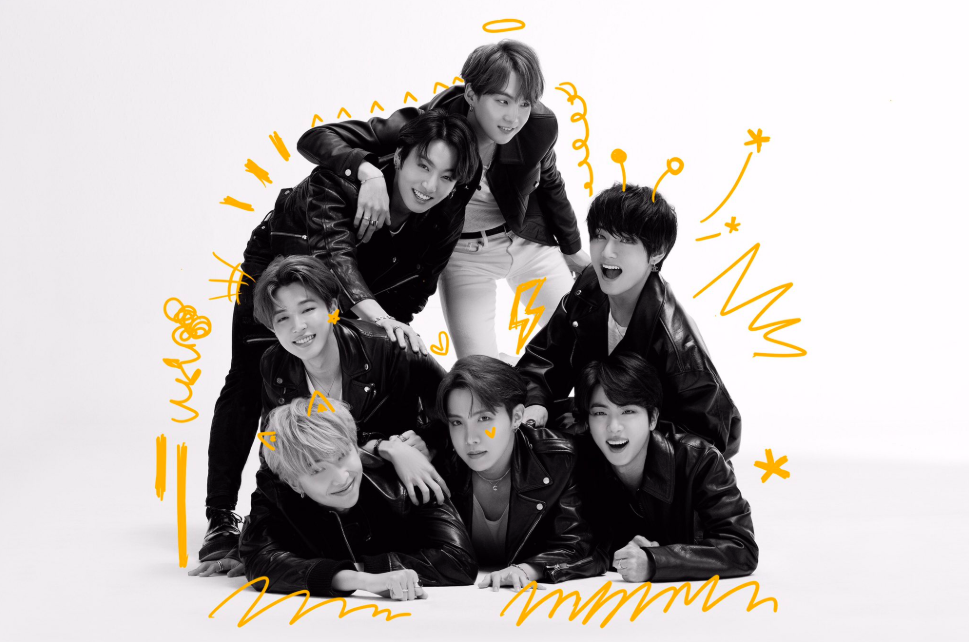
Unfortunately, the music on this project simply doesn’t do the lyrics and concept justice – in contrast to the lyrics, the melodies and arrangements are often generic and forgettable. The whole project lacks the subtlety suggested by the teaser content and high-brow concept. In fact, this has been the prevailing trend in recent years; more and more, their concepts have edged towards the intellectual, complex and sophisticated, while their music has descended towards the generic, derivative and safe.
Now that they stand on a global stage, it is fully within their power to innovate and create new trends, rather than still belatedly following Western ones. They may have been cutting-edge early adopters when they translated trends for the K-pop market, but now that their music arrives in the same context and is held to the same standards as their once-idols, that same strategy won’t work. Songs like “Black Swan” and “On” prove that they still have what it takes; with a little more imagination, that Grammy could still be on its way.
If you enjoyed this article, check out some of our previous BTS articles:
Connect, BTS in NYC Unites Human, Environment, Music, and Art
The Lost Potential of BTS’ Love Yourself Series
Side B: BTS Finds Strength in Vulnerability
Giving BTS a Second Chance, One of The Most Beautiful Moments of Life
(YouTube [1]. Lyrics via BTS-Trans. Images via Big Hit Entertainment.)
